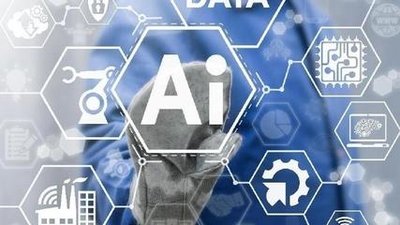Cisco is a thought leader and technology pioneer in the development of artificial intelligence applications in the conference space. From the 1990s to the present, or at every stage of artificial intelligence development, Cisco has always led the trend and trend of AI development.
SPOTO focus on IT certification training for 16 years. Over 16 years, SPOTO helped tens of thousands of candidates achieve their Cisco CCNA, CCNP, CCIE, CISSP certification. Subscribe us and get the more news.
1.History of Cisco and Artificial Intelligence
Machine intelligence
Cisco's video conferencing terminal, launched in the 1990s, has media adaptability to optimize the user experience by detecting network problems and adjusting connection details.
Cisco's Webex DX80 small conference video solution uses a variety of microphone beamforming technologies to further optimize the audio experience by detecting system-related attendee locations and shielding sound from other locations.
Machine learning
Cisco's Speaker tracker 60 camera uses machine auditory and machine vision capabilities to recognize facial and location information for automatic voice tracking through the camera
Deep learning
Cisco's new Webex Room family features the industry's most advanced automated voice assistant, noise cancellation, face recognition, and other artificial intelligence technologies.
2. Cisco launches servers that support artificial intelligence and machine learning
Beijing, September 14, 2018 – Artificial intelligence (AI) and machine learning (ML) are opening new avenues for companies to solve complex problems. But they will also have a profound impact on the underlying IT infrastructure and processes. According to the Gartner survey, "only 4% of CIOs worldwide report that they are working on artificial intelligence projects." * This number will grow significantly in the next few years. When this happens, the IT department will be unable to cope with new workloads, new traffic patterns, and new relationships that emerge in the business. To help companies address these emerging challenges, Cisco introduced its first server built for artificial intelligence and machine learning workloads.
This new Cisco UCS server (C480ML) will significantly accelerate the speed of deep learning. Deep learning is a form of computationally intensive machine learning that uses neural networks and large data sets to train computers to perform complex tasks. Thanks to its high-performance NVIDIA GPUs, the server dramatically improves the performance of today's most well-known machine learning software stacks. Data scientists and developers will be able to experiment with machine learning on laptops. However, large-scale deep learning requires more computing power. It requires an IT architecture that can receive large data sets, as well as tools that can understand such data and use it to learn. To meet this need, Cisco and its technology partners have worked together to validate many of today's most popular machine learning tools to help organizations simplify deployment and accelerate insight.
Roland Acra, senior vice president of Cisco's global data center and general manager of the data center business unit, said: "In the next few years, artificial intelligence and machine learning-based applications will become the main force of the enterprise. Although they can solve many complex business problems, But it will also bring new challenges to IT. Today, the power of the Cisco UCS product line will power the entire industry's artificial intelligence initiatives. Our early customers in the financial sector are exploring innovative ways to improve fraud detection and enhance algorithms. At the same time, in the medical field, customers want better insights, improved diagnostic results, improved medical image classification, and accelerated drug discovery and research."
Large-scale promotion of artificial intelligence
With the new Cisco UCS C480 ML Machine Learning Server, Cisco now offers a full range of server products that provide reliable support for every stage of artificial intelligence and machine learning lifecycle. From edge data collection and analysis to data center data preparation and training, to real-time reasoning of artificial intelligence cores, customer needs for AI can be fully met.
Designed for data scientists and developers: Today, thousands of customers are using Cisco UCS to help them with big data analysis. Cisco's new C480ML server, designed for artificial intelligence and machine learning, leverages Cisco's extensive expertise in moving artificial intelligence data from the edge to the core to further development. Help customers extract more intelligence from their data and use it to make faster, more informed decisions. In addition, with the introduction of the new DevNet AI Developer Center and DevNet Ecosystem Exchange, Cisco also provides data scientists and developers with the tools and resources they need to create next-generation artificial intelligence applications.
Built for IT: The UCS server system makes it easy for IT to add new technologies to their environment. Leverage the Cisco Intersight Cloud Management Platform to leverage the power and simplicity of cloud-based system management capabilities to enable IT, administrators, to automate IT infrastructure operations management from the cloud. At the same time, IT administrators can use Cisco-proven designs to help gain insight into the rapidly evolving array of artificial intelligence and machine learning software for confident deployment across the enterp
Relying on the ecosystem: Cisco is not alone. Its newly built server uses a container and a cloud computing model to enable enterprises to easily deploy open source software on a large scale while running applications from anywhere. In addition, Cisco is also validating machine learning environments and software on new servers, including Anaconda, Kubeflow, and solutions from Cloudera and Hortonworks. Clients using Kubeflow's UCS server system running on Kubernetes will find it easy to deploy artificial intelligence workloads directly to the Google Kubernetes platform while leveraging local and cloud machine learning capabilities.

 Join Telegram Study Group ▷
Join Telegram Study Group ▷













